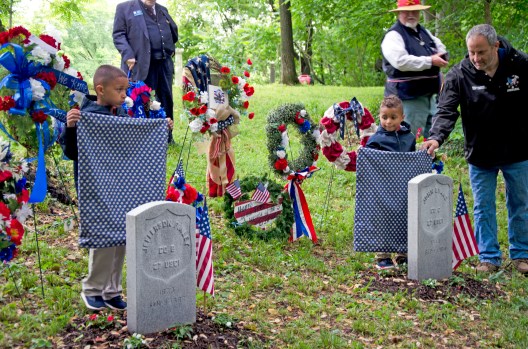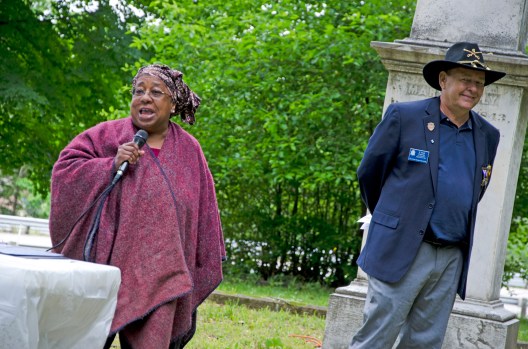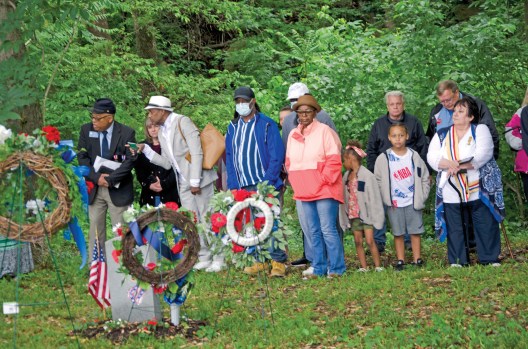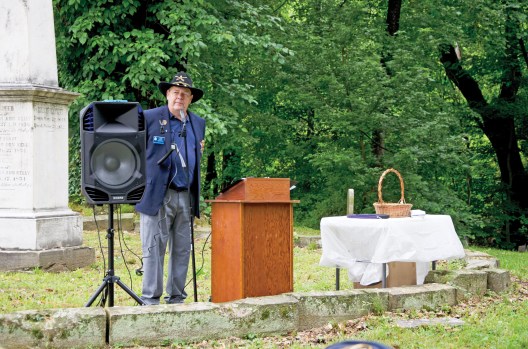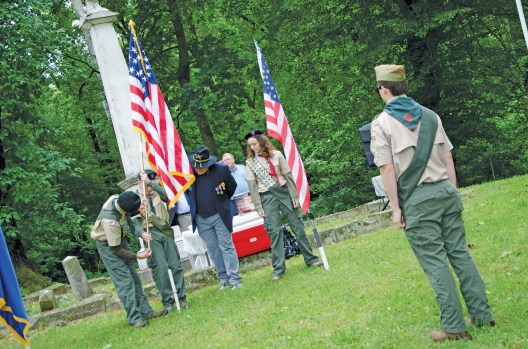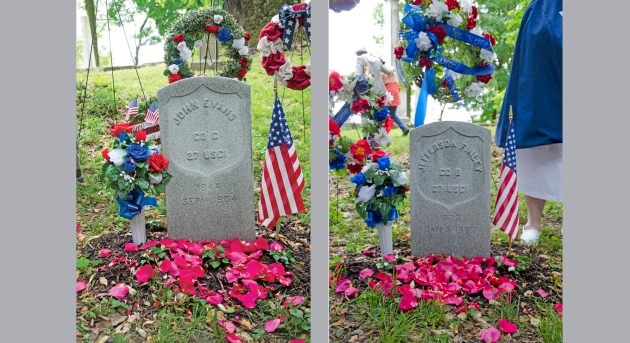Black soldiers graves from Civil War honored (WITH GALLERY)
Published 12:00 am Thursday, June 3, 2021
Dedication held for headstones of Union veterans
Nearly 160 years after their service, two Union veterans of the Civil War were honored with new headstones at W.D. Kelly Cemetery in Ironton.
A dedication ceremony took place at the cemetery, adjacent to U.S. 52, on Saturday. It was hosted by the Lytle Camp Committee of the Sons of Union Veterans of the Civil War for the graves of Pvts. John Evans and Jefferson Finley, two Black soldiers from Ironton who served in the 27th U.S. Colored Infantry.
The 27th U.S. Colored Infantry was organized at Camp Delaware, Ohio beginning Jan. 16, 1864 and was active until Sept. 21, 1865. It was one of two Black regiments raised mainly in Ohio. From Lawrence County, about 3,000 men served in Union forces, about 40-50 of whom were Black.
Evans is the great-great-grandfather of Lawrence McCullough, camp chaplain for the Lytle Camp Project Committee. He served in Company C and died after the war on Sept. 1, 1904. Finley is McCullough’s great-great-great-uncle and was Evans’ brother-in-law. He served in Company B and died on Jan. 5, 1887.
“Both men served in one of 175 regiments known as the colored regiments,” Scott Freeman, of Lytle Camp and the event’s master of ceremonies, said.
He noted that 10 percent of Union soldiers at the war’s end were African-American and numbered more than 100,000.
He said this was a marked contrast from the beginning of the war, when it was illegal for Black people to enlist.
Freeman said, in July 1862, Congress passed the Militia Act of 1862, which changed that, but it was not until May 1863 that the United States “got serious about recruiting African American soldiers.”
He said service for them was faced with hardship, 20 percent died before the war’s end and Black soldiers died at a rate 35 percent higher than others.
Freeman also spoke of what he called an “unpleasant truth” that racism was just as prevalent in the northern, Union states as it was in the southern, Confederate states.
“Being against slavery and being for equality were two different things,” he said of attitudes among much of the White population at the time.
He said that Black soldiers “were subject to racism and ridicule from their fellow Union soldiers and generally despised by Confederates.”
But he said those in service “without exception, fought with great courage and valor.”
And it was due to this, that he said it led to an eventual change in attitudes.
“Because of their distinguished service, they advanced the idea of equality,” he said.
Freeman said, as records were lost, the exact location in the cemetery for the graves is not known, but they knew they were close to where the markers were placed, as it is in the Grand Army of the Republic section of the cemetery, which was reserved for Union veterans.
Following Freeman’s remarks, the headstones were unveiled to the gathering, which consisted of about 50 people, including descendants and relatives of the soldiers.
Wreaths were placed by the graves from the Sons of Veterans of the Civil War, the Macedonia Missionary Baptist Church Preservation Society, the Nurse Honor Guard of the River Cities, Scout Troop 106 of Ironton and the William C. Lambert Museum and Archive. Afterward, rose petals were sprinkled on the graves by attendees.
One of those in attendance on Saturday was Omopé Carter-Daboiku (née Deborah carter,), of Dayton, an Ironton native, 1970 graduate of Ironton High School and daughter of the Rev. Dr. Douglas C. Carter of First Baptist Church of Burlington.
She spoke at the close of the event.
“I used to pass this place regularly,” Carter-Daboiku, who serves as moderator emeritus for Providence Missionary Baptist Association, said of growing up in Lawrence County. “It was a mess of tangled history. This place was a part of my childhood.”
She reflected on the sacrifices that Evans and Finley made.
“I just can not imagine people, just getting newfound freedom, picking up a gun and risking their life for a principle that had not been allowed,” she said. “They were doing it, not for themselves, but for those of us related by blood or condition.”
Following the ceremony, a guest speaker, Dr. Kelly D. Mezurek, a professor of history at Walsh University and author of the book, “For Their Own Cause: The 27th United States Colored Troops,” spoke at The Armory Smokehouse in Ironton.


